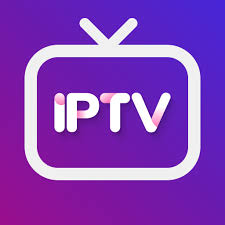Television as we know it is evolving. With the rise of the internet and smart devices, traditional cable and satellite TV are gradually being replaced by best IPTV services — a faster, more flexible, and more affordable way to enjoy your favorite channels and content. If you’ve heard of IPTV but aren’t sure what it is or how it works, this blog is your one-stop guide.
In this article, we’ll break down what IPTV services are, their benefits, the different types available, legal concerns, and how to choose the right IPTV provider in 2025.
📺 What Is an IPTV Service?
IPTV (Internet Protocol Television) is a way of delivering television content through the internet, rather than using traditional formats like satellite, cable, or terrestrial signals. IPTV services allow users to stream live TV, on-demand shows, and movies directly to their smart TVs, computers, tablets, or mobile phones.
Unlike YouTube or other general streaming services, IPTV typically mimics a traditional TV structure — complete with live channels, an electronic program guide (EPG), and sometimes cloud-based DVR options. It’s like having a cable subscription, but over the internet and often with more features.
🧩 Types of IPTV Services
IPTV services can be broadly divided into three categories:
1. Live Television
This is the closest experience to traditional cable or satellite TV. You get access to live channels — news, sports, entertainment — streamed in real time.
2. Video on Demand (VOD)
With VOD, you can choose from a library of movies or TV shows and watch them whenever you want. This is similar to Netflix or Amazon Prime.
3. Time-Shifted TV / Catch-Up TV
This allows you to replay a program that aired earlier — usually within a 7-day window. It’s great if you missed a live broadcast but want to catch up without recording.
✅ Benefits of Using an IPTV Service
Here’s why IPTV has gained popularity:
- Cost-Effective: IPTV subscriptions often cost significantly less than cable or satellite packages, especially for access to international channels.
- Flexibility: Watch your favorite content on smart TVs, smartphones, tablets, or PCs. Many services also support multi-device streaming.
- On-Demand Content: Access vast libraries of shows, series, and movies whenever you want — no more scheduling your life around TV.
- Customization: IPTV platforms often let you choose packages based on your interests — sports, kids, movies, or international channels.
- No Hardware Required: No need for a satellite dish or bulky hardware. A simple app or streaming device (like Firestick or Roku) is enough.
- Global Access: Some IPTV providers offer channels from multiple countries, making them ideal for expatriates or multi-lingual households.
🔐 Is IPTV Legal?
IPTV is legal — when done right. Services that have proper licensing to stream content are fully legal. Examples include:
- YouTube TV
- Hulu + Live TV
- Sling TV
- BBC iPlayer
- NOW TV
These services acquire broadcasting rights from content creators and pay licensing fees.
However, not all IPTV providers are legal. Many unverified services offer thousands of premium channels at very low prices, but they usually don’t own the rights to the content. Using such services could put you at risk of:
- Legal penalties
- Privacy and data breaches
- Unstable streams and downtime
- Viruses or malware
Always verify that your IPTV provider is licensed and reputable.
🧠 How to Choose the Right IPTV Service
With so many IPTV providers available in 2025, it’s important to choose wisely. Here are the key factors to consider:
1. Channel Selection
Make sure the provider offers the channels you watch regularly — whether it’s sports, news, kids’ content, or movies. Some services are global, while others focus on specific regions like the USA, UK, or India.
2. Streaming Quality
Look for services that support HD or 4K resolution and offer minimal buffering. A good IPTV service should adjust quality based on your internet speed.
3. Device Compatibility
Ensure the service works with your devices — Smart TVs, Firestick, Roku, Android boxes, smartphones, or web browsers. Most modern IPTV platforms support a wide range of platforms.
4. Customer Support
A reliable IPTV provider will offer technical support, installation help, and troubleshooting via email, chat, or phone. Poor support is a red flag.
5. Free Trial or Demo
Many legit services offer a 24- to 48-hour trial so you can test their features and quality before committing to a subscription.
6. Payment & Security
Only use services that offer secure payment gateways. Avoid providers that only accept cryptocurrency or ask for odd payment methods unless you’re confident about their trustworthiness.
💡 Top IPTV Apps and Platforms
Even if your IPTV service doesn’t provide its own app, you can use IPTV players like:
- IPTV Smarters Pro
- Tivimate
- XCIPTV Player
- GSE Smart IPTV
These apps allow you to load your IPTV playlist (usually an M3U link) and customize how you view content.
🌍 IPTV for Expats and Global Viewers
One major advantage of IPTV is access to international channels. Whether you’re a UK resident wanting access to Indian, Arabic, or African TV, or an expat living abroad missing your home country’s news — IPTV can fill the gap. Many services specialize in region-specific content, offering a familiar viewing experience even when you’re thousands of miles from home.
📌 Final Thoughts
IPTV services are revolutionizing the way we consume television. They offer more flexibility, better content variety, and lower prices than traditional TV providers. But not all IPTV providers are created equal. As the popularity of IPTV grows, so does the number of illegal or low-quality providers.
If you’re considering making the switch in 2025, take your time to research providers, compare features, and make sure you’re using a legal and trusted IPTV service. Done right, IPTV can completely change your viewing experience — giving you more control, more content, and more value.



